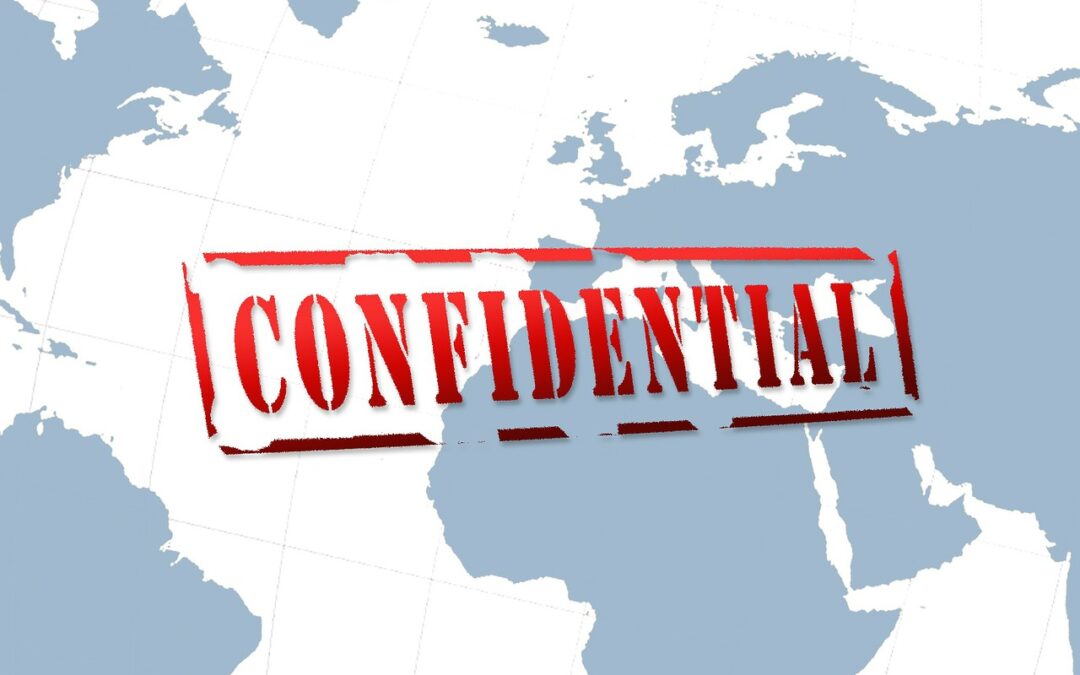Protecting confidential information is essential for any business. It’s especially difficult in this digital age when businesses and organizations may handle hundreds or even thousands of clients – with cybercriminals ever on the lookout for ways to infiltrate their systems and profit from sensitive information.
The task can also be challenging due to the wide variety of information that may be considered privileged and/or confidential. Despite the challenges, businesses must prioritize handling confidential information – specifically the security and confidentiality of info that could be harmful or risky in the wrong hands. They must not only bolster their cybersecurity, but also enact internal policies for protecting themselves and the good people they serve.
Here are some examples of the types of information that MUST be protected:
- Business and marketing plans
- Company initiatives
- Consumer information and lists
- Company financial account information
- Credit card information
- Health information
- Information relating to intellectual property
- Inventions or patents
- Passwords and IT-related information
- Payroll and personal records
- Research data
- Self-restricted personal data
- Social security numbers
- Third-party information
Notice these are in alphabetical order. That’s because not one of them deserves hierarchy over another. When handling confidential information, it all must be treasured and protected as if it were your own! By properly acknowledging and taking care of confidential information, businesses can protect their reputation, avoid legal consequences, and maintain the trust of their customers and stakeholders.
In Today’s Increasingly Connected Digital World, Handling Confidential Information Safely is Critical
Protecting confidential information is essential for the success and competitive advantage of a business. Not only could failing at data protection result in the loss of consumer confidence in your business and brand, but it could also carry steep legal penalties. To ensure the safeguarding of company trade secrets under state and federal laws, the following practices should be implemented when handling confidential information:
Common Sense Safeguards
Confidential information should be kept confidential and out of the public’s view. Only those who have business handling confidential information and who have agreed to keep it secret should be allowed to access it. Reasonable efforts should be made to protect trade secrets. The importance of this should be self-explanatory.
Restricted Distribution
Confidential information should only be accessed by those with a legitimate business need to know the information. This helps to minimize the risk of unauthorized access to confidential information.
Electronic Information Protection Systems
Only those who are obligated to keep information confidential should have access to computer systems containing such information. Employees’ and clients’ logins and passwords safeguarded at all times.
Your Organization’s Employees Also Have a Responsibility When Handling Confidential Information
As part of their employer’s confidential information policy, employees must adhere to the following responsibilities:
- First and foremost, comply with applicable state and federal laws as well as company policies related to accessing, using, and disclosing confidential information.
- Consult with appropriate company personnel if they have any questions regarding the proper use or disclosure of confidential information.
- Avoid seeking confidential information that does not relate to their job duties.
- Maintain confidentiality of all privileged information, both during their employment and after their termination, and only use, access, store or disclose such information as necessary to perform their job duties for the company. Nondisclosure agreements (NDAs) are particularly important and helpful.
- Store and communicate confidential information only through the company’s proprietary hardware, software and information systems.
- Refrain from removing materials or property containing confidential information from their secure office or department, unless absolutely necessary for job duties. Employees working remotely must take any necessary precautions to secure confidential information from unauthorized disclosure or theft.
- Report IMMEDIATELY to a supervisor any known violations of the company’s confidential information policy, as well as protocol or data breaches by themselves or anyone else.
Handling Confidential Information Can Be Tricky. Call Acme Business For Support
Depending on your business, protecting confidential information may be no easy feat. Call Acme Business with any questions about securing your system, with years of experience, Homeland Security Certified, Level 4 Certified by the United States Attorney General, Microsoft Certified, HIPAA Certified amongst many others, Acme will know just what your company needs to keep all your information safe and secure.
If you’re interested in learning more about managed IT and cybersecurity services, chat with the experts here at Acme Business. We work alongside noted cybersecurity partners like SentinelOne, as well as data management systems by Kyocera, among many other products and services. Acme Business owner James Finch, Jr. also leads his team with a Level 4 Security Awareness certification, the highest offered by the Criminal Justice Information Services.
Call Acme Business at (716) 372-1325 and connect with us on LinkedIn. Our experts can tailor services to your unique business needs.


Recent Comments